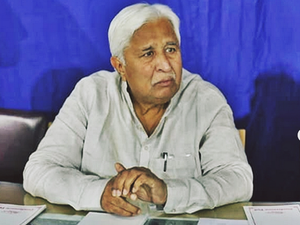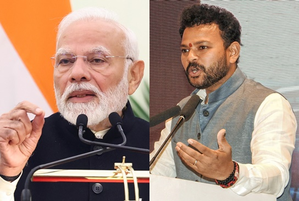
New Delhi, April 3 (IANS) The Union government has disbursed over Rs. 1,440 crore as grants to boost rural development across five states– Arunachal Pradesh, Gujarat, Madhya Pradesh, Nagaland, and Punjab — during the financial year 2024–25, according to a statement issued by the Ministry of Panchayati Raj on Thursday.
These grants, allocated in two installments per financial year, are released by the Ministry of Finance based on recommendations from the Ministry of Panchayati Raj and the Ministry of Jal Shakti.
Madhya Pradesh was allocated Rs 651.7794 crore as the first instalment (untied grants) for FY 2024–25. These funds were meant for 52 eligible district panchayats, 309 eligible block panchayats, and 22,995 eligible gram panchayats.
Gujarat was allocated Rs 508.6011 crore as the first instalment (untied grants) for FY 2024–25 for 27 eligible district panchayats, 242 eligible block panchayats, and 14,469 eligible gram panchayats.
Punjab was allocated Rs.225.975 crore as the 2nd installment (untied grants) for FY 2024–25 for 22 eligible zila parishads, 149 eligible block panchayats, and 13,152 eligible gram panchayats.
Arunachal Pradesh was allocated Rs 35.40 crore as the first instalment (untied grants) for FY 2022–23 for all the eligible rural local bodies in the state, while Nagaland was allocated Rs 19.20 crore as the first instalment (untied grants) for FY 2022–23, designated for all eligible rural local bodies.
These grants were disbursed under the Fifteenth Finance Commission recommendations.
Untied grants empower rural local bodies to address location-specific needs under the 29 subjects listed in the Eleventh Schedule of the Constitution, excluding salaries and establishment costs.
Tied grants, on the other hand, must be utilised for sanitation and maintenance of ODF (Open Defecation Free) status, including household waste management, human excreta, and fecal sludge treatment.
They are also allocated for drinking water supply, rainwater harvesting, and water recycling.
The grants aim to strengthen local governance and ensure effective service delivery in rural areas.
–IANS
sps/vd











